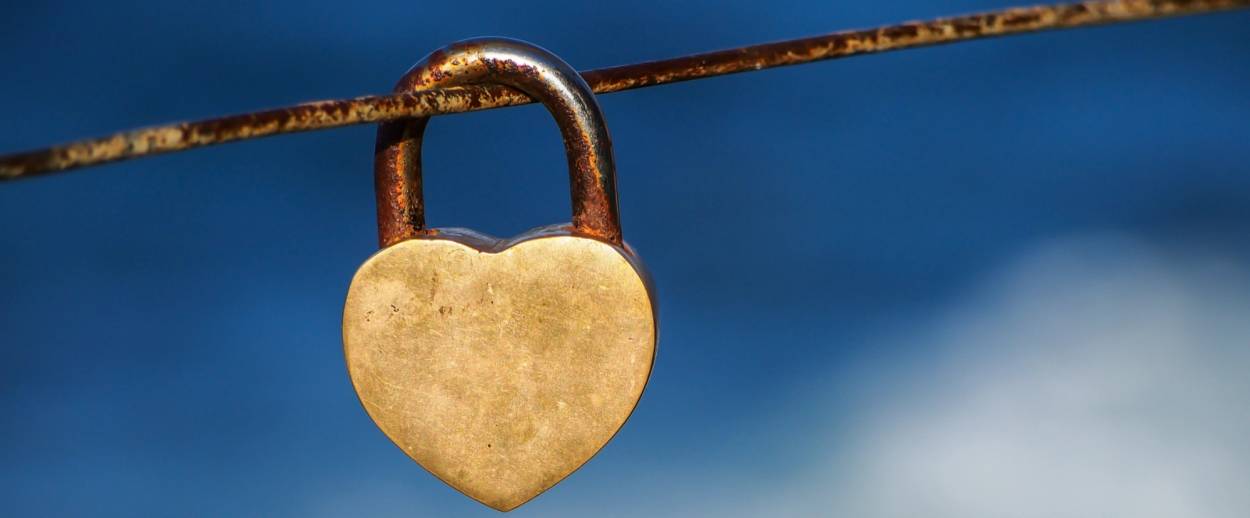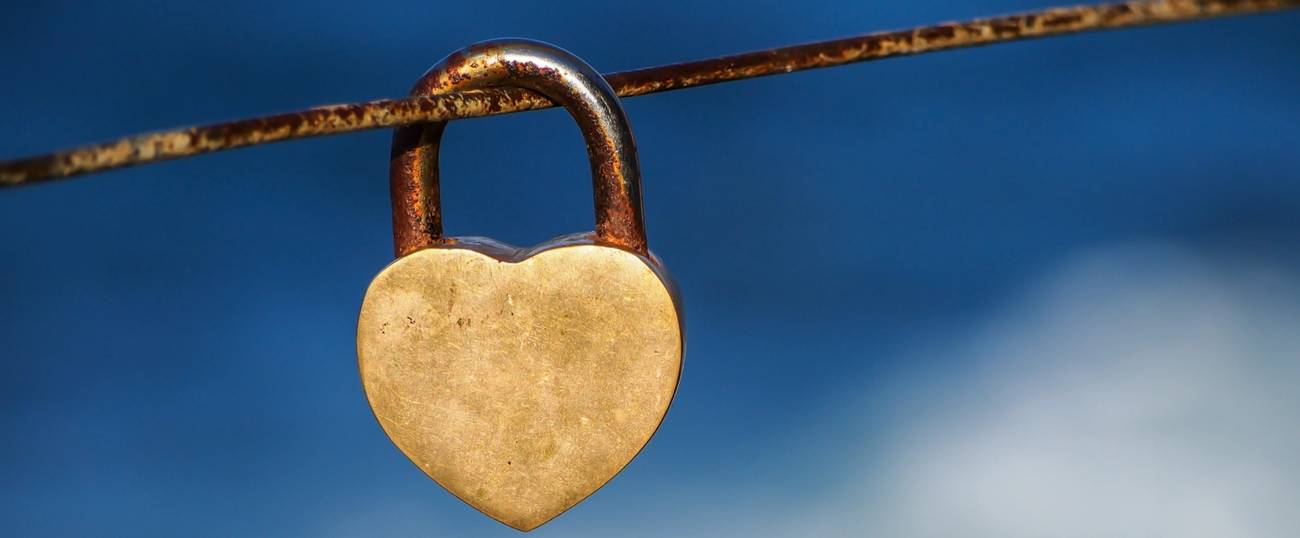Solving the Riddle of Love
Every Tu B’Av, the Jewish Valentine’s Day, I was a deflated, lonely man. Then I learned how to love myself—and others.




When I was single and ads for Tu B’Av, the Jewish Valentine’s Day, would explode across all media throughout Tel Aviv, I would feel thoroughly defeated, deflated. Listening to my friends’ plans—the flowers and the reservations, the gifts and the chocolate—I was reminded just how alone I was, and that my wish for a truly special love might never come.
Obviously this endless romantic failure meant I was just not good enough. After all, there’s some science here: my friends found love and I hadn’t. The men I want don’t want me. This had to mean something. I’m too fat. Too boring. Do I smell? What is it?
I needed to “solve” the “loneliness problem.” And my pursuit of a solution drove me to more guys, more dates, more disappointments. during another Tu B’Av, I sat in my room, listening to songs like Vonda Shepard’s “I Know Him By Heart,” in which she croons, “I know he’s out there somewhere, just beyond my reach.” (You may know this song from the television show, Ally McBeal)
As I cried to my friend Liat on the phone about yet another miserable date she said, “Honey, you know he exists somewhere, and he’s about to arrive in your life. He just had to go to the Supermarket first…” This idea, this simple notion that love really is the alignment of two people’s lives by chance, opened up a whole new way of looking at love for me: There is someone out there for all of us, and we will meet and we will connect at the moment in which we’re both ready to love.
But I wasn’t ready. Not yet. In my first couple of years of therapy I began to understand that being ready for love with someone else starts by loving ourselves. Can you imagine anything more cliché? Awful! But after endless failed and meaningless dates I finally understood that they all end the same way because of me, not because of them. How do I feel about myself? How much do I value my thoughts, my feelings, my time? And based on all of this, do I attract the kind of people who are, themselves, not ready for a relationship? If I’m not ready, and they’re not ready, I end up alone.
“Instead of constantly looking for dates on Grindr and ending up feeling bad about yourself, why don’t you try to use the time for you?” my therapist posited. “Why don’t you develop hobbies, try to write more, concentrate on what you’re eating, maybe volunteer somewhere, and develop a more healthy and full life? Look at yourself in the mirror every day until you finally really love what you see, without judgment. And that care for yourself might open you to a different type of people.”
For one of our sessions my therapist asked me to bring an old photo album from my parents’ home. I never liked seeing myself in photos, and photos from my teenage years were the worst. An awful, ugly, Jewish mama’s boy. “Why are you so angry at yourself in these photos?” my therapist would ask. “Can’t you see how lost and sad this boy is? Nobody really understands him. You should feel compassion for him, not anger.” How powerfully that message hit home. How incredibly hard I had been on myself. How ashamed I was about myself. Nobody deserves that.
That was the day that I began a true romance with myself.
And as things progressed, I also started to learn that the harder I pushed to “make love happen,” the more desperately I crawled toward the promised oasis, the more quickly it all vanished—a mirage. I was so intense about it that I didn’t just let things happen.
Love has been around for thousands of years—much longer than the TuB’Av holiday. Love doesn’t care what day of the year it is. Love will come when love is ready. When I think about it, the most significant relationships I’ve had always started when I wasn’t looking for a boyfriend. I was just open to the idea of having one. And by the way, it turned out that he wasn’t at the supermarket; he was at the gym on a random Saturday morning.
Tu B’Av comes on the last day in July this year, and randomly enough, the month of August is apparently celebrated in America as National Romance Awareness Month. I think it’s the best day to start our romance with ourselves. The flaws that we see in ourselves are not what keeps us from having love. Problems occur when we think we should hide our flaws and not have them at all. But when you accept your own flaws, which sometimes is impossible to do without therapy, you become a more accepting person in general, and then, before you know it, you make romantic plans for the forthcoming Tu B’Av.
Previous: Happy Tu B’Av!
All You Need Is…
Tu B’Av and No Love
Related: Is This ‘The Face of the Future of Judaism’ for a New Generation in Los Angeles?
Yanir Dekel is a writer and Editorial Marketing expert living in Los Angeles. His new book, Imperfect Thing Called Love, is now available in paperback and digital editions.